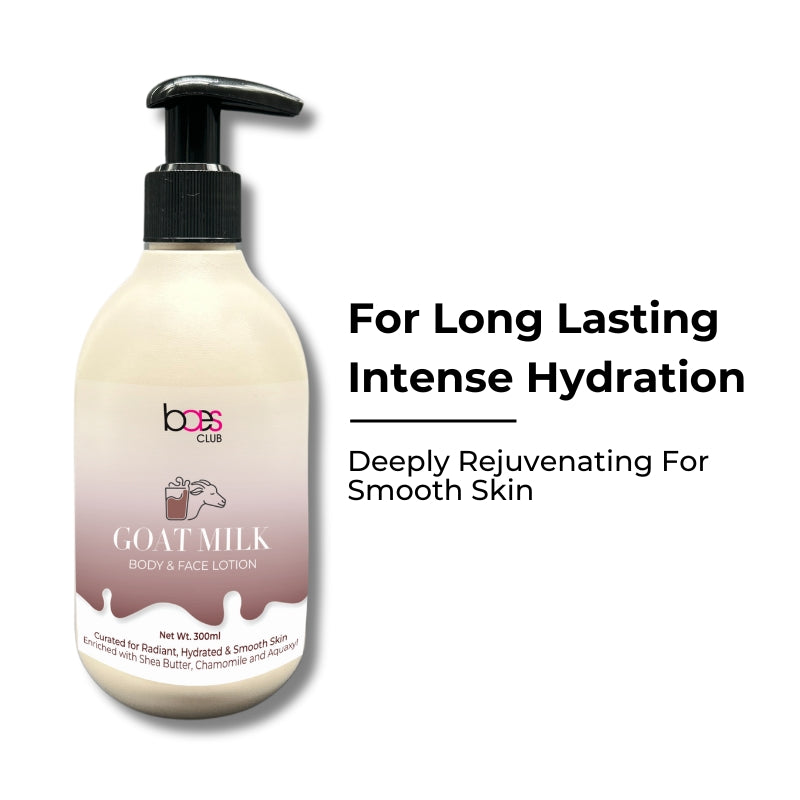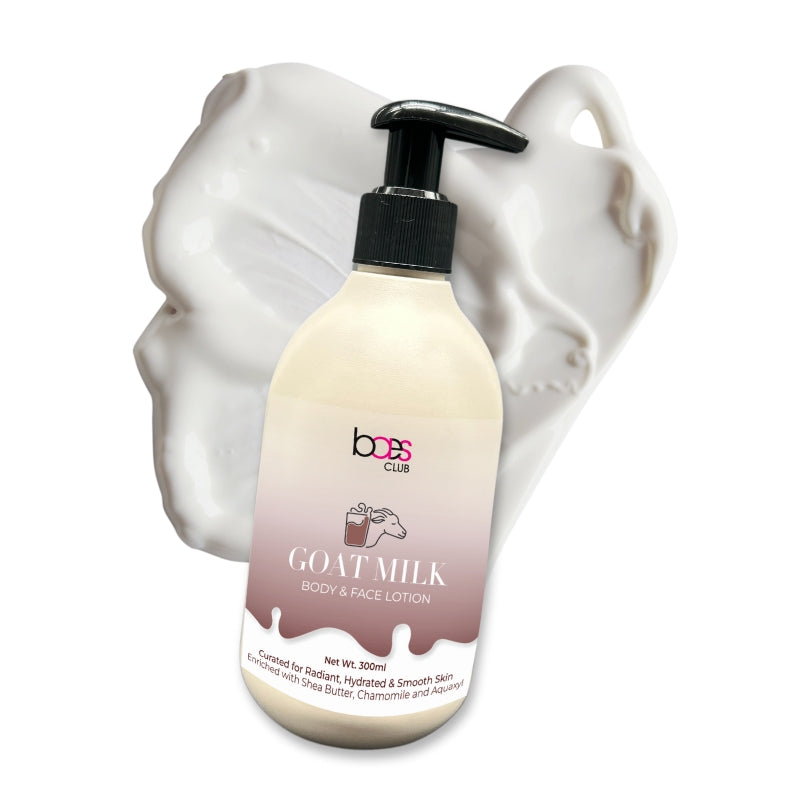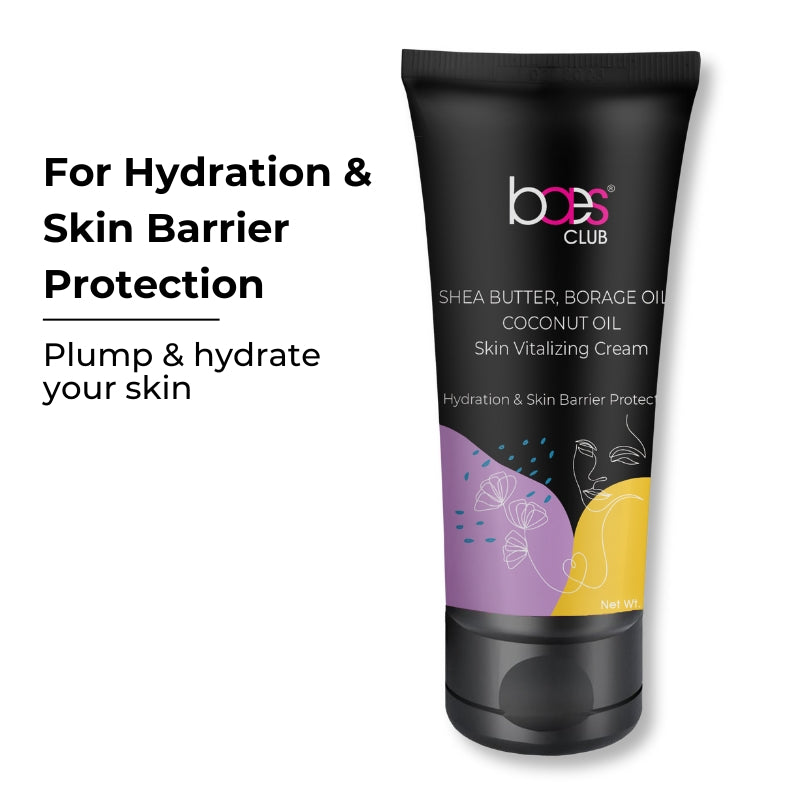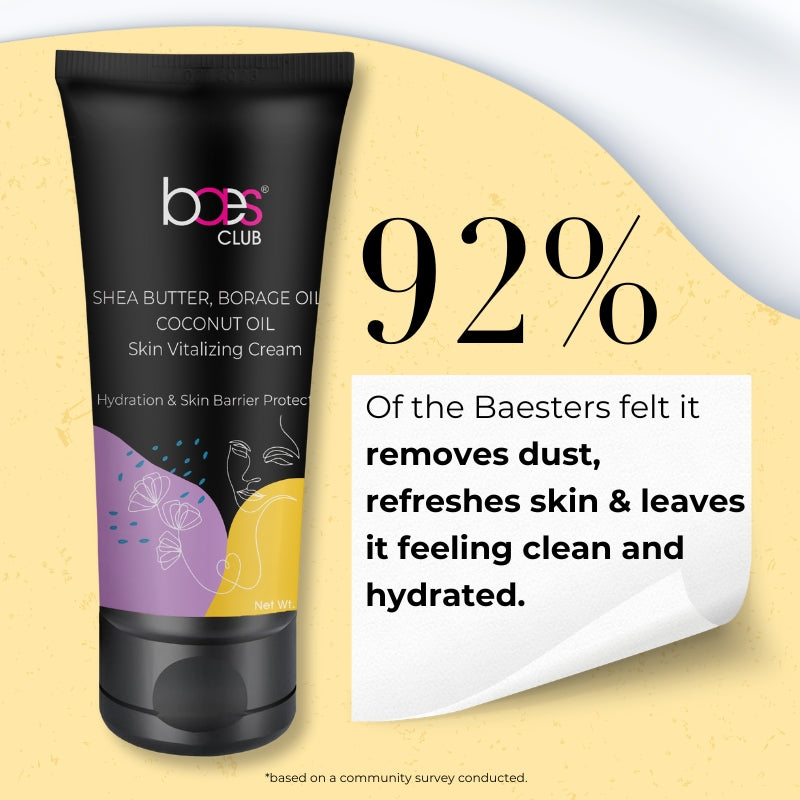Dry, irritated skin is a common issue that can affect anyone at any age. Whether it’s caused by weather changes, lifestyle habits, or skincare mistakes, dryness can make your skin feel tight, rough, and uncomfortable. Even worse, prolonged dryness can lead to a compromised skin barrier, making your skin more susceptible to irritation, inflammation, and breakouts.
In this blog, we'll explore everything you need to know about dryness and the skin barrier—what they are, why they happen, how to prevent them, and who should be concerned. We’ll also share tips on how to repair a damaged skin barrier and keep your skin soft, hydrated, and healthy.
What Is Dry Skin?
Dry skin occurs when the outer layer of the skin (the epidermis) lacks sufficient moisture and natural oils. When the skin loses moisture, it can feel rough, tight, and flaky. Dryness can affect any part of the body but is particularly common on areas like the face, hands, elbows, and knees.
What Is the Skin Barrier?
The skin barrier, also known as the stratum corneum, is the outermost layer of your skin. It consists of cells (corneocytes) held together by lipids (fats) such as ceramides, cholesterol, and fatty acids. The primary function of the skin barrier is to protect your skin from environmental damage, pollutants, bacteria, and allergens, while also locking in moisture and preventing water loss.
When the skin barrier is healthy, your skin appears hydrated, smooth, and resilient. However, when the skin barrier becomes compromised, moisture escapes, and irritants can enter more easily, leading to dryness, redness, sensitivity, and inflammation.
Why Does Dryness and Skin Barrier Damage Happen?
Dry skin and a damaged skin barrier can be caused by a variety of factors, both external and internal. Understanding these causes can help you prevent and address the issues before they escalate.
External Factors:
- Weather Changes: Cold, dry weather in winter can strip your skin of its natural oils, leading to dehydration and a weakened skin barrier. Indoor heating during colder months can also worsen dryness by reducing humidity levels.
- Harsh Skincare Products: Skincare products containing alcohol, sulfates, or fragrances can be harsh on the skin and strip away natural oils, causing the skin to become dry and irritated.
- Overwashing: Excessive washing or cleansing with hot water can remove the skin's natural moisture, leading to a weakened barrier. Even mild cleansers can cause dryness if used too frequently.
- Excessive Exfoliation: While exfoliation is important for removing dead skin cells, over-exfoliating can damage the skin’s protective barrier, leading to irritation, sensitivity, and moisture loss.
- Sun Exposure: UV rays from the sun can penetrate deep into the skin, breaking down collagen and lipids, leading to dehydration and weakening the skin's natural barrier over time.
Internal Factors:
- Aging: As we age, the skin produces fewer natural oils and loses its ability to retain moisture effectively. The skin barrier also becomes weaker, making older individuals more prone to dryness and irritation.
- Dehydration: Not drinking enough water can lead to dehydration, affecting the skin’s ability to retain moisture. This can result in dry, flaky, and tight skin.
- Diet: A diet low in essential fatty acids, vitamins, and minerals can contribute to dryness. Omega-3 fatty acids, for example, are vital for maintaining healthy skin cell membranes and retaining moisture.
- Medical Conditions: Certain medical conditions, such as eczema, psoriasis, and diabetes, can disrupt the skin barrier, leading to chronic dryness, inflammation, and irritation.
- Hormonal Changes: Hormonal fluctuations due to menopause, pregnancy, or thyroid conditions can also affect the skin’s moisture levels, causing dryness and sensitivity.
Who Is Prone to Dry Skin and a Weakened Skin Barrier?
Anyone can experience dry skin and a compromised skin barrier, but some individuals are more prone to these issues:
- Individuals with Eczema or Psoriasis: These chronic skin conditions are characterized by dryness and inflammation, often resulting in a compromised skin barrier.
- Older Adults: As the skin ages, it naturally becomes drier and less resilient, making older adults more susceptible to dryness and barrier damage.
- People Living in Cold, Dry Climates: Harsh winter weather and low humidity levels can strip the skin of its natural oils, leading to dehydration.
- Those with Sensitive Skin: Individuals with sensitive skin are more likely to experience dryness and irritation, particularly when exposed to harsh products or environmental stressors.
- Frequent Travelers: Traveling, especially by air, can expose the skin to dry environments, depleting moisture levels and weakening the skin barrier.
How to Know If Your Skin Barrier Is Compromised
If your skin barrier is damaged, you may experience the following symptoms:
- Increased Dryness and Flakiness: Your skin feels tight, rough, or scaly, especially after cleansing.
- Redness and Sensitivity: Your skin becomes easily irritated or inflamed, reacting to products or environmental factors that previously didn’t cause issues.
- Breakouts: A weakened barrier can lead to clogged pores, which in turn can cause acne and other breakouts.
- Stinging or Burning Sensation: Your skin may sting or burn when applying skincare products, even those formulated for sensitive skin.
- Dehydrated Appearance: The skin looks dull, lackluster, and feels parched, often with fine lines becoming more pronounced.
How to Prevent and Treat Dryness and Skin Barrier Damage
The key to addressing dry skin and repairing a compromised skin barrier is to focus on gentle, hydrating, and nourishing skincare habits. Here’s how to do it:
1. Hydrate Inside and Out
- Drink Plenty of Water: Hydration starts from within. Aim to drink at least eight glasses of water per day to keep your skin and body hydrated.
- Use a Humidifier: If you live in a dry climate or use indoor heating, a humidifier can help maintain moisture levels in the air, preventing your skin from becoming overly dry.
2. Choose Gentle, Hydrating Skincare Products
- Cleanse with Care: Opt for gentle, sulfate-free cleansers that don’t strip the skin of its natural oils. Cleansing oils or balms are great options for dry skin.
- Use Hydrating Serums and Moisturizers: Look for products that contain hydrating ingredients such as hyaluronic acid, glycerin, and aloe vera. These ingredients help attract and retain moisture in the skin.
- Moisturize Frequently: Moisturizing is crucial for maintaining a healthy skin barrier. Use rich creams or lotions containing ceramides, fatty acids, and cholesterol to help restore the barrier’s lipids.
- Seal in Moisture: After applying your moisturizer, consider using an occlusive like petroleum jelly or shea butter to lock in hydration, especially if you have severely dry skin.
3. Avoid Over-Exfoliating
- Limit Exfoliation: Over-exfoliating can cause tiny tears in the skin barrier, worsening dryness and irritation. Stick to exfoliating once or twice a week with gentle exfoliants, like lactic acid or mandelic acid, and avoid harsh scrubs.
4. Protect Your Skin from the Elements
- Wear Sunscreen Daily: UV damage can weaken the skin barrier, so it’s important to protect your skin by wearing a broad-spectrum sunscreen every day, even during winter or cloudy weather.
- Dress Appropriately: During cold or windy weather, cover exposed skin with scarves, gloves, and hats to prevent windburn and moisture loss.
5. Support Your Skin with a Balanced Diet
- Eat Omega-3s and Antioxidants: Incorporate foods rich in omega-3 fatty acids (such as fish, flaxseeds, and walnuts) and antioxidants (like berries, leafy greens, and nuts) to support skin health and repair.
- Take Supplements: If necessary, consider taking supplements that support skin health, such as omega-3 fish oil, vitamin E, and ceramide supplements.
6. Repair Your Skin Barrier
- Use Barrier-Repairing Products: Products containing ceramides, niacinamide, and fatty acids are specifically formulated to help restore a damaged skin barrier. Applying these ingredients can help rebuild the barrier and restore skin health over time.
7. Avoid Hot Water
- Use Lukewarm Water: Hot water can strip your skin of its natural oils, worsening dryness. Opt for lukewarm water when showering or washing your face.
When Should You Start Caring for Your Skin Barrier?
It's never too early or too late to start taking care of your skin barrier. If you're experiencing dryness, sensitivity, or any signs of a compromised barrier, now is the time to act. Early intervention with the right products and habits can prevent long-term damage, while those already dealing with a weakened barrier can still benefit from repair-focused skincare routines.
Conclusion: Maintaining a Healthy Skin Barrier is Essential
Dry skin and a compromised skin barrier can lead to discomfort, irritation, and a host of skin concerns, but with the right care, you can prevent and treat these issues effectively. Hydrating from the inside out, using gentle products, and nourishing your skin with the right ingredients will help keep your skin barrier strong and healthy.
Whether you're just starting your skincare journey or looking to repair existing damage, prioritizing hydration and protection will lead to healthier, more resilient skin. Keep your skin barrier intact, and you'll enjoy a smoother, more radiant complexion for years to
Everything You Need to Know About Sensitive Skin: Causes, Care, and Solutions
Sensitive skin is a term that most of us have heard but often struggle to define or fully understand. It is not a medical diagnosis but rather a common skin condition where the skin is prone to reactions such as redness, itching, dryness, or stinging. For those with sensitive skin, even the most harmless skincare products, environmental factors, or lifestyle habits can lead to irritation and discomfort.
In this blog, we’ll explore everything you need to know about sensitive skin—what it is, why it happens, when it may become an issue, and who is more likely to experience it. We’ll also discuss how to care for sensitive skin, so you can manage it effectively and enjoy a healthy, balanced complexion.
What Is Sensitive Skin?
Sensitive skin refers to a skin type that reacts easily to external triggers. People with sensitive skin may experience redness, itching, burning, stinging, or dryness after coming into contact with certain skincare products, environmental factors, or even stress. Sensitive skin can be temporary or a long-term condition, and it can affect people of any age, skin type, or ethnicity.
The key difference between sensitive skin and other skin types is the skin’s compromised ability to protect itself from irritants. A healthy skin barrier typically shields the skin from potential irritants and allergens, but with sensitive skin, this barrier is weakened or hyper-reactive, allowing external factors to penetrate more easily and cause discomfort.
Why Does Sensitive Skin Happen?
Sensitive skin can develop due to a variety of factors, both internal and external. Understanding these causes can help individuals manage their sensitive skin better and avoid common triggers.
Internal Factors:
- Genetics: Sensitive skin often runs in families. If your parents or siblings have sensitive skin, you may be more likely to develop it as well. This is because genetic predispositions can affect the strength and resilience of the skin barrier.
- Skin Conditions: Certain skin conditions, such as eczema (atopic dermatitis), rosacea, and psoriasis, are closely associated with sensitive skin. These conditions cause the skin to become inflamed and reactive, leading to symptoms like redness, itching, and stinging.
- Hormonal Changes: Hormonal fluctuations, such as those that occur during pregnancy, menstruation, menopause, or with thyroid imbalances, can affect the skin’s sensitivity. Hormones influence the production of oils, moisture retention, and inflammation levels, which can make the skin more prone to irritation.
- Aging: As we age, our skin becomes thinner and loses some of its natural moisture and oils, which can make it more vulnerable to sensitivity. The skin’s protective barrier weakens over time, which makes it less resilient to environmental irritants.
External Factors:
- Skincare Products: Many skincare products contain ingredients that can irritate sensitive skin. These include fragrances, alcohol, sulfates, parabens, and harsh exfoliants. Even products designed for normal skin can cause reactions in people with sensitive skin.
- Environmental Stressors: Environmental factors such as pollution, extreme weather (heat, cold, wind), and UV radiation can trigger or exacerbate sensitive skin. For example, exposure to the sun’s UV rays can inflame and irritate sensitive skin, leading to redness and dryness.
- Stress: Emotional and physical stress can trigger or worsen skin sensitivity. Stress increases the body’s production of cortisol, which can weaken the skin barrier and make it more reactive.
- Diet: Certain foods and beverages, such as spicy foods, alcohol, and caffeine, can trigger skin sensitivity in some individuals. For those with rosacea, for example, consuming these triggers can lead to redness and flare-ups.
When Does Sensitive Skin Become an Issue?
Sensitive skin can become an issue at any time in life, although certain stages and environmental conditions can make sensitivity more likely. It may occur suddenly due to changes in your skincare routine, environmental exposure, or stress, or it may develop gradually over time as part of a chronic skin condition or the natural aging process.
Some people only experience sensitive skin temporarily. For example, using a harsh product that disrupts the skin barrier can cause short-term sensitivity, but once the skin heals, it may return to normal. However, for others, sensitive skin can be a long-term issue that requires consistent care and attention.
Who Is Prone to Sensitive Skin?
Anyone can experience sensitive skin, but some people are more prone to it than others. Here are some groups more likely to deal with sensitive skin:
- People with Pre-existing Skin Conditions: Individuals with eczema, rosacea, or psoriasis are particularly prone to sensitive skin.
- Fair-Skinned Individuals: Fair-skinned people tend to have thinner skin with fewer protective pigments, making them more vulnerable to environmental damage and sensitivity.
- Older Adults: As mentioned earlier, aging skin loses moisture and oils, which can result in increased sensitivity.
- People Living in Harsh Environments: Those exposed to extreme temperatures, pollution, or frequent UV exposure may develop sensitive skin due to these external stressors.
- Women: Hormonal fluctuations during different life stages, such as puberty, pregnancy, and menopause, make women more likely to experience sensitive skin than men.
How to Know If You Have Sensitive Skin
If you have sensitive skin, you may notice some of the following symptoms:
- Redness: Your skin becomes flushed or blotchy after using certain products, being in the sun, or experiencing extreme weather.
- Dryness: Sensitive skin often feels dry and tight, particularly after cleansing or exposure to cold weather.
- Itching and Burning: You may experience itching, burning, or stinging sensations when applying skincare products or after exposure to irritants.
- Breakouts or Rashes: Sensitive skin is prone to breakouts, rashes, or bumps, particularly after using new skincare products or makeup.
- Visible Blood Vessels: Those with sensitive skin may also notice broken capillaries or visible blood vessels, especially on the face.
How to Care for Sensitive Skin
Sensitive skin requires extra care and attention, but with the right approach, you can manage sensitivity effectively and keep your skin calm, hydrated, and healthy. Here’s how to care for sensitive skin:
1. Use Gentle, Fragrance-Free Products
Fragrance is a common irritant for sensitive skin, so it’s important to choose products that are free of synthetic fragrances. Look for products labeled as "fragrance-free" rather than "unscented," as unscented products can still contain masking fragrances.
Additionally, opt for gentle, hypoallergenic products that are formulated for sensitive skin. Avoid harsh ingredients such as alcohol, sulfates, and parabens, which can further irritate sensitive skin.
2. Moisturize Regularly
Moisturizing is essential for sensitive skin, as it helps to maintain the skin’s protective barrier and lock in moisture. Choose a moisturizer that contains soothing and hydrating ingredients such as aloe vera, hyaluronic acid, glycerin, and ceramides. Avoid products that are too rich or heavy, as they can clog pores and cause breakouts.
Apply moisturizer immediately after cleansing to help lock in moisture and soothe the skin.
3. Avoid Over-Cleansing and Hot Water
Over-cleansing can strip the skin of its natural oils, making it more vulnerable to irritation and sensitivity. Stick to cleansing your face twice a day—once in the morning and once at night—using a gentle, sulfate-free cleanser.
Additionally, avoid using hot water, as it can dry out and irritate the skin. Instead, cleanse with lukewarm water and gently pat your skin dry with a soft towel.
4. Protect Your Skin from the Sun
Sun exposure is one of the leading causes of sensitivity and irritation in the skin. Always wear a broad-spectrum sunscreen with at least SPF 30, even on cloudy days or when indoors near windows. Look for sunscreens that are labeled as non-comedogenic and formulated for sensitive skin.
Physical sunscreens (those containing zinc oxide or titanium dioxide) are often gentler on sensitive skin than chemical sunscreens, which can cause irritation in some individuals.
5. Avoid Exfoliating Too Often
Exfoliation is important for removing dead skin cells, but over-exfoliating can damage the skin’s protective barrier and lead to increased sensitivity. If you have sensitive skin, stick to gentle exfoliation once a week using a mild exfoliant, such as a product containing lactic acid or polyhydroxy acids (PHAs), which are less likely to cause irritation.
Avoid physical exfoliants, such as scrubs with rough particles, as they can cause microtears in sensitive skin.
6. Stay Hydrated
Drinking plenty of water throughout the day is essential for keeping your skin hydrated and healthy. Dehydration can worsen skin sensitivity and lead to dryness and irritation, so make sure you’re getting enough fluids, especially during hot weather or when exercising.
7. Patch Test New Products
Before introducing new skincare or makeup products into your routine, always perform a patch test to see how your skin reacts. Apply a small amount of the product to a discreet area, such as behind your ear or on the inside of your wrist, and wait 24 to 48 hours. If your skin doesn’t react negatively, it’s likely safe to use on your face.
8. Manage Stress
Stress can worsen skin sensitivity, so it’s important to incorporate stress-management techniques into your routine. Practices such as mindfulness meditation, yoga, or deep breathing exercises can help reduce stress levels and keep your skin calm.
Conclusion: Sensitive Skin Requires Special Care
Caring for sensitive skin can be a challenge, but with the right products, habits, and precautions, you can manage sensitivity effectively and maintain healthy, balanced skin. By understanding what triggers your

 Goat Milk Body & Face LotionGoat Milk Body & Face Lotion
Goat Milk Body & Face LotionGoat Milk Body & Face Lotion
 Goat Milk Sunscreen | SPF 50 | PA++++ With Vitamin E, Shea butter & Almond OilGoat Milk Sunscreen | SPF 50 | PA++++ With Vitamin E, Shea butter & Almond Oil
Goat Milk Sunscreen | SPF 50 | PA++++ With Vitamin E, Shea butter & Almond OilGoat Milk Sunscreen | SPF 50 | PA++++ With Vitamin E, Shea butter & Almond Oil
 Skin Vitalizing CreamSkin Vitalizing Cream
Skin Vitalizing CreamSkin Vitalizing Cream







